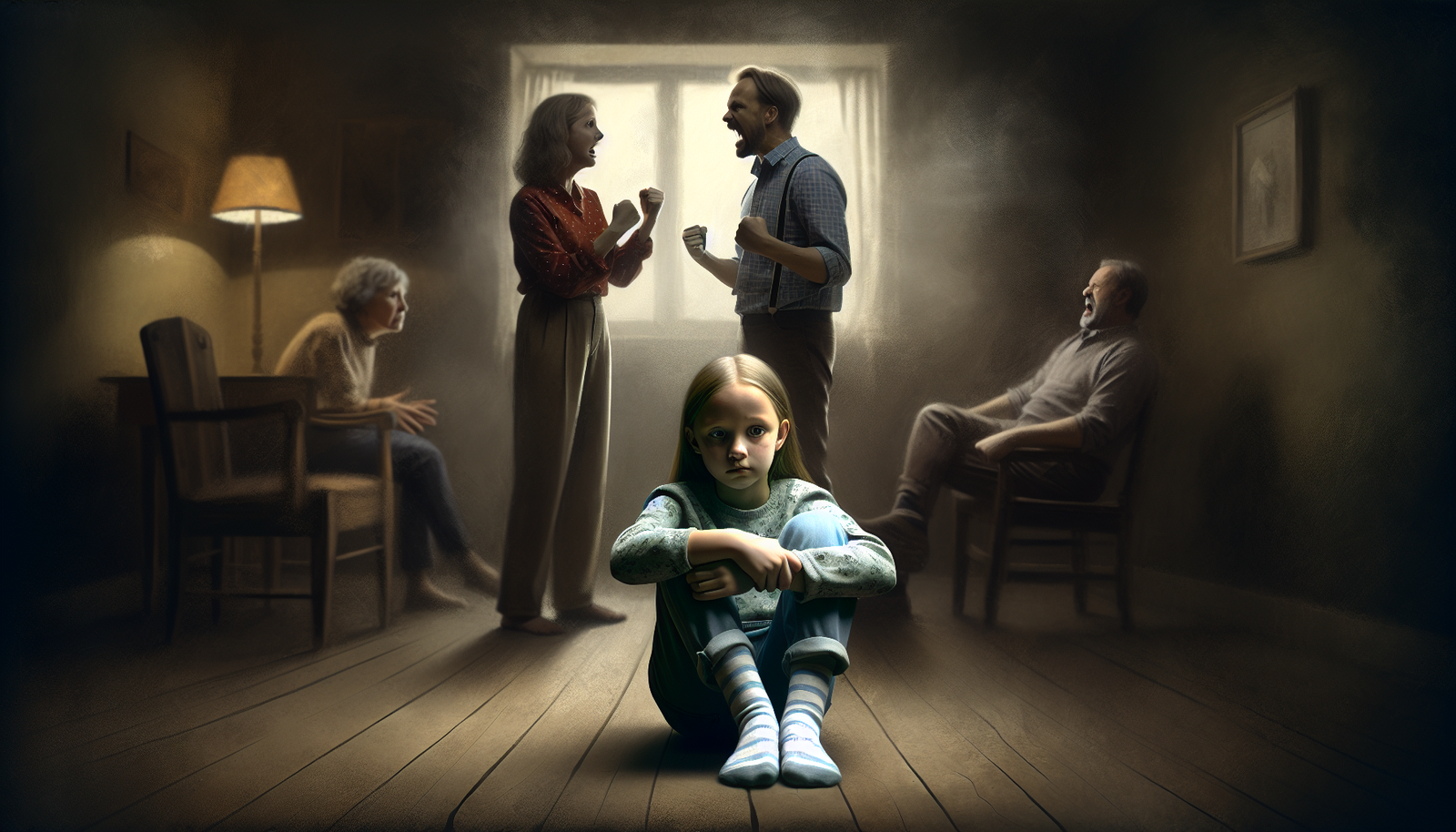An Unexpected Peek into Parenting: How Our Actions Shape Little Minds
Have you ever found yourself at the grocery store, juggling three young kids and a ticking time bomb by the name of a preschool tantrum?
**Yep, me too**.
Balancing parenting’s tightrope act is something we all wrestle with.
But recently, I stumbled upon a fascinating topic that really forced me to think deeper about how our parenting styles could be carving out pathways in our children’s developing brains.
The Parenting Style Puzzle: More Than Just a Trend?
Every parenting choice, from free-range to helicopter, seems to come with its own set of guidelines and potential pitfalls.
I’m sort of an in-betweener, a mom who’s trying to raise independent, yet **respectful, kids**.
After reading an article on how harsh parenting affects children’s futures, I found myself questioning every countdown and time-out I’d ever enforced.
Decoded: The Brain-Parenting Connection
Here’s the gist of the research that caught my interest: harsh parenting, as it turns out, goes a lot deeper than just creating strict boundaries.
Studies show it can lead to long-term changes in a child’s brain, potentially impacting their empathy, emotional regulation, and even their **confidence**.
**Mind blown, right?**
Or, maybe you already suspected this standing in that cereal aisle, sugar levels and sanity both dipping dangerously low.
Understanding the Real Impact
Imagine you’re sitting with your preschooler, and suddenly, they decide that anger is their best friend for the day.
What if, in those moments when our patience is on its last thread, what we say and how we react is actually sketching out **neural pathways**?
Here’s what really hit me:
- Children’s brains are like little sponges. They soak up every reaction, every tone we use
- Harsh tones could trigger stress responses, *literally* altering brain structure
- This can lead to difficulties in handling emotions and behavior in the long run
Now, believe me, I’m not saying we should all go vanilla and let our kids rule the kingdom.
Way to chaos, right?
But maybe, just maybe, a tweak here or there in our responses can make all the difference.
Finding the Balance: From Combat Zone to Collaborative Adventures
We’re all seeking **that perfect eigenstate where tantrums morph into teachable moments**.
But hey, that’s like trying to nail jelly to a wall sometimes, isn’t it?
What if instead of stooping to harshness, we tried a method that promotes understanding?
- Take a deep breath and ask, “What’s going on, buddy?”
- Keep eye contact as a reminder that they’re being seen and heard
- When the storm settles, talk it out. Guidance works better than reprimand
Nobody said parenting was all rainbows and butterflies, but it can be an adventure worth diving into with an empathetic touch.
Rewiring Our Parenting Habits: No Easy Feat
Okay, it’s confession time.
I’m not supermom.
I spend so many nights reevaluating my reactions, half-worried I’ve somehow short-circuited a precious brain cell.
We’re human, not robots, and our parenting comes with tons of unwritten rules.
Here’s how I’m actively trying to shift gears:
- Acknowledge my own ‘big feelings’ before reacting
- Set **realistic** expectations for myself and my kiddos
- Keep communication lines open—even when it’s messy
Perhaps the greatest skill we need to focus on might just be the ability to admit when and where we could do better.
Because meaningful change doesn’t happen overnight, does it?
Champions, Not Dictators: Building Lasting Bonds
Life-changing moments don’t need to be fancy.
They happen in the warmth of shared glances, quiet assurances, and even during the mad scramble to get everyone out the door.
Let’s take on the challenge of being **champions, not dictators**, for our kids. It might just be the heart of conscious parenting.
Incredible, isn’t it?
A mere tweak, an extra moment to think, could etch out a more supportive framework in our youngster’s lives.
There’s a certain power in recognizing what weight our words carry.
So here’s to our messy, beautiful, ever-evolving journey as parents—and making sure the impact is positive, not harsh.
Because, moms, these aren’t just brains we’re helping to grow; they’re the futures we’ll someday wave off into the world.
Now that’s worth a deep breath or two in the cereal aisle.

